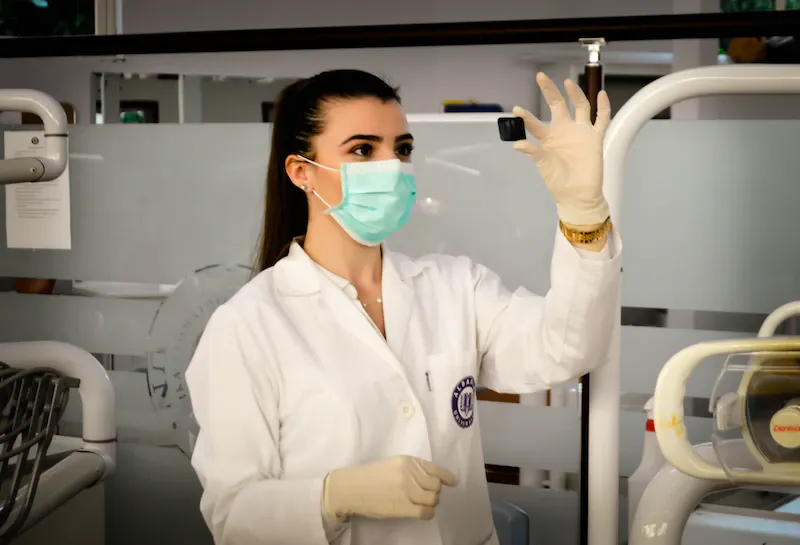Revamp Your Health: The Power of Simple Lifestyle Changes

Understanding the Role of Family Doctors in Managing Chronic Medical Conditions
Chronic medical conditions can significantly impact a person’s quality of life and can require long-term medical care. Family doctors play a crucial role in managing these conditions and providing continuous care to patients.
One key aspect of a family doctor’s role is to monitor and manage chronic medical conditions such as diabetes, heart disease, and arthritis. Family doctors are equipped to provide ongoing care, including regular check-ups, medication management, and lifestyle recommendations. By closely monitoring patients’ conditions, family doctors can help prevent complications and provide early interventions when necessary.
In the video script, the speaker gives an example of a patient with diabetes who requires ongoing care from a family doctor. The doctor can monitor the patient’s blood sugar levels, adjust medication dosages, and provide guidance on dietary changes to help manage the condition. Similarly, a family doctor can work with a patient who has heart disease to manage blood pressure, cholesterol levels, and provide guidance on exercise and diet.
Another critical aspect of a family doctor’s role is to coordinate care with other healthcare providers, including specialists and therapists. Family doctors can ensure that their patients receive comprehensive care by working with other healthcare professionals to manage chronic conditions. This collaboration can help ensure that patients receive appropriate and timely care, leading to improved health outcomes.
In conclusion, family doctors play a vital role in managing chronic medical conditions, providing ongoing care and monitoring, and coordinating care with other healthcare providers. By working with family doctors, patients can receive comprehensive care, improve their health outcomes, and maintain their quality of life.
Simple Lifestyle Changes Can Improve Serious Medical Conditions
In addition to providing medical treatment, family doctors also educate their patients on lifestyle changes that can improve their overall health and well-being. These simple changes can often make a big difference in managing serious medical conditions.
For example, eating a healthy diet and getting regular exercise can help patients with high blood pressure and diabetes to better control their conditions. In the video, the speaker emphasizes the importance of a healthy diet, including limiting processed foods and consuming more fruits and vegetables. She also suggests finding enjoyable ways to stay active, such as dancing or hiking.
Another lifestyle change that can have a significant impact on health is quitting smoking. The speaker notes that smoking is a major risk factor for many serious health conditions, including cancer, heart disease, and stroke. Quitting smoking can be a difficult process, but family doctors can provide support and resources to help patients through it.
Other simple lifestyle changes that can improve health include getting enough sleep, managing stress, and avoiding excessive alcohol consumption. By working with their family doctor and making these changes, patients can improve their quality of life and reduce their risk of serious medical problems.
Lifestyle changes are more effective than medications
In the video, the speaker mentioned that lifestyle changes such as diet and exercise are more effective than medications when it comes to managing chronic medical conditions. This is because medications only treat the symptoms of the condition, while lifestyle changes address the root cause.
For example, for patients with type 2 diabetes, changing their diet and increasing physical activity can help regulate blood sugar levels, which can reduce the need for medication. In some cases, patients who make these lifestyle changes can even reverse their diabetes entirely.
Another example is hypertension, or high blood pressure. While medications can help control blood pressure, making lifestyle changes such as reducing salt intake and increasing physical activity can also have a significant impact on blood pressure levels.
It’s important to note that lifestyle changes are not always easy to make, and may require significant effort and support. However, the long-term benefits can be life-changing and can even reduce the need for medication altogether. As always, it’s important to consult with a healthcare provider before making any significant lifestyle changes.
A Whole-Food Plant-Based Diet Can Reverse Heart Disease
Heart disease is a leading cause of death in the world. However, the good news is that it can be reversed with simple lifestyle changes. One of the most effective changes that can be made is adopting a whole-food plant-based diet.
Research has shown that a plant-based diet can lower the risk of heart disease, and in some cases, even reverse it. This is because plant-based foods are low in saturated fats and cholesterol, and high in fiber, which helps to reduce blood pressure and inflammation.
For example, in one study, patients with heart disease were put on a plant-based diet, and after just a few weeks, their blood pressure and cholesterol levels decreased significantly. In another study, patients who followed a plant-based diet for a year saw a reversal of their heart disease.
It’s important to note that a whole-food plant-based diet is not a temporary fix or a fad diet, but rather a sustainable way of eating that can provide long-term health benefits. By focusing on whole, unprocessed plant-based foods such as fruits, vegetables, whole grains, legumes, nuts, and seeds, individuals can improve their heart health and reduce their risk of other chronic diseases.
Dark Leafy Greens Can Dilate Arteries and Break Down Plaque
In addition to adopting a whole-food plant-based diet, incorporating dark leafy greens into your meals can have a significant impact on your heart health. These greens are rich in nitrates, which can help dilate your arteries, lower blood pressure, and improve blood flow. They are also packed with antioxidants, which can help protect your blood vessels from damage.
In the video, it was mentioned that a study showed that consuming a daily green smoothie containing spinach and kale helped to reduce plaque buildup in arteries by 13%. This shows that even small dietary changes can have a big impact on heart health.
Some examples of dark leafy greens that you can easily add to your diet include spinach, kale, collard greens, Swiss chard, and arugula. You can incorporate them into salads, smoothies, stir-fries, and soups, among other dishes.
By including more dark leafy greens in your diet, you can improve your heart health and reduce your risk of heart disease.
Reduced Blood Flow is a Common Denominator in Many Chronic Conditions
One of the key takeaways from the video is that reduced blood flow is a common factor in many chronic medical conditions, including heart disease, diabetes, and Alzheimer’s disease. The speaker explains that these conditions all involve a buildup of plaque in the arteries, which restricts blood flow to various organs and tissues in the body.
In addition to the lifestyle changes discussed earlier in the video, the speaker notes that there are other ways to improve blood flow and prevent or treat chronic conditions. For example, exercise is an effective way to increase blood flow and improve cardiovascular health. The speaker also mentions other therapies, such as hyperbaric oxygen therapy and chelation therapy, that are designed to improve blood flow and reduce inflammation in the body.
The speaker emphasizes that the key to preventing and treating chronic conditions is to address the underlying cause, which is often related to reduced blood flow. By adopting a healthy lifestyle, including a plant-based diet, regular exercise, and stress management techniques, individuals can improve their blood flow and reduce their risk of developing chronic conditions.
Atherosclerosis is not a normal age-related condition
In the video, the speaker explains that atherosclerosis, the hardening and narrowing of arteries due to plaque buildup, is not a normal age-related condition. Rather, it is the result of a diet and lifestyle that promote inflammation, oxidative stress, and endothelial dysfunction. The speaker emphasizes the importance of reducing the intake of processed and animal-based foods, which are high in saturated and trans fats, and increasing the consumption of whole plant foods, which are rich in fiber, antioxidants, and anti-inflammatory compounds.
The speaker also notes that smoking, high blood pressure, diabetes, and high cholesterol can contribute to the development of atherosclerosis. Therefore, addressing these risk factors through lifestyle changes and medication, if necessary, can help prevent and reverse the condition.
In summary, atherosclerosis is a preventable and reversible condition that is not a normal consequence of aging. By adopting a whole-food, plant-based diet and addressing other risk factors, individuals can improve their cardiovascular health and reduce their risk of heart disease and stroke.
Simple habits that we control are remarkably effective in improving our health
The speaker emphasizes that simple habits that we control are remarkably effective in improving our health. The following are some key takeaways from the video on this topic:
- Regular exercise, a balanced diet, and stress management can help prevent and even reverse chronic diseases like heart disease, diabetes, and hypertension.
- Simple habits like getting enough sleep and staying hydrated can also significantly impact our health.
- The speaker stresses the importance of taking responsibility for our own health and making small, sustainable changes to our daily habits, rather than relying solely on medications or medical interventions.
The speaker notes that even small changes in our lifestyle habits can have a significant impact on our health. For example, taking a daily walk or incorporating more vegetables into our diet can help lower our risk of developing chronic diseases. It is essential to prioritize our health by making intentional choices about our daily habits and seeking guidance from healthcare providers when necessary.
Conclusion
The human body is an intricate system that requires constant maintenance to stay healthy. Chronic medical conditions can take a significant toll on our lives and often require long-term treatment. However, by adopting simple lifestyle changes, we can significantly improve our health outcomes and prevent the progression of chronic medical conditions.
Family doctors play a vital role in managing chronic medical conditions by providing personalized care to their patients. They can help patients understand their conditions better and create a plan that includes lifestyle changes to manage their conditions effectively.
Through the video script, we have learned that lifestyle changes can be more effective than medications in managing chronic medical conditions such as heart disease, high blood pressure, and diabetes. Simple habits such as eating a whole-food plant-based diet, exercising regularly, getting adequate sleep, reducing stress, and quitting smoking can have a profound impact on our health.
We have also learned that dark leafy greens such as spinach and kale are excellent sources of nutrients that can dilate arteries and break down plaque, which is essential in managing heart disease.
Reduced blood flow is a common denominator in many chronic conditions, and adopting healthy lifestyle habits can improve blood flow and reduce the risk of developing chronic medical conditions.
Finally, we have learned that atherosclerosis is not a normal age-related condition and can be prevented by making healthy lifestyle changes.
In conclusion, by adopting simple lifestyle changes and working with our family doctors, we can significantly improve our health outcomes and prevent the progression of chronic medical conditions. Let us make a commitment to take care of our bodies and live our lives to the fullest.

